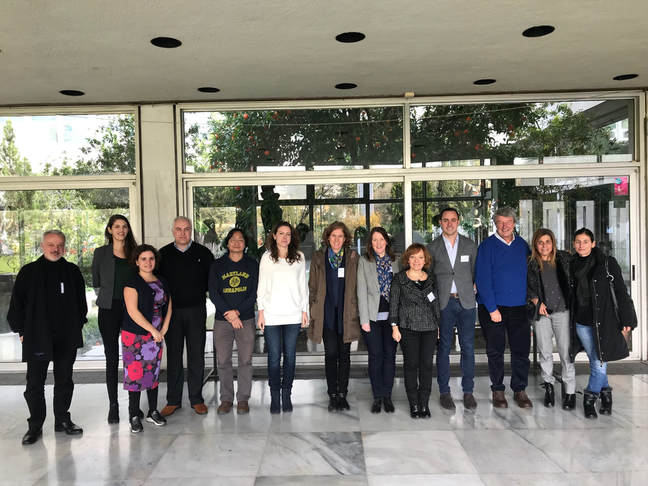Neurotrophins are a family of closely related secreted proteins that control a number of aspects of survival, development and function of neurons in both the central and the peripheral nervous systems. Preclinical studies point to the therapeutic potential of neurotrophins as a means of tackling both the symptoms (improving clinical status) and the pathogenesis (delaying disease progression) in several NDs despite their varied and incompletely understood underlying pathogeneses. However, poor pharmacokinetic properties of neurotrophins render their use as drugs prohibitive.
The EU-funded project EuroNeurotrophin, is the first European consortium to study small molecule neurotrophin mimetics in depth, and in order to progress their clinical translation will build the research capacity necessary for the development of novel candidate therapies. Coordinated by the National Hellenic Research Foundation (www.eie.gr), EuroNeurotrophin started on 1 January 2018 and will run for 4 years. The participants will address the major limitations of neurotrophins by developing novel small molecule mimetics with favourable profiles of stability, tissue penetration and targeted biological actions. 14 Early Stage Researchers (ESRs) will be recruited to research new approaches to ND treatment by capitalising on a synergistic combination of medicinal chemistry, natural product isolation, computer-aided drug design, structural biology, molecular biology, pharmacology, high throughput screening and ‘omics’ technologies. The project will contribute to the development of small molecule therapeutics for the treatment of neurodegenerative diseases and neuroinflammation, the understanding of neurotrophin receptor signalling, and the creation of a pan-European neurotrophin research network. The EuroNeurotrophin network consists of 10 Beneficiaries and 8 Partner Organisations from 9 countries who together provide a highly multidisciplinary and intersectoral training and research scheme. Most importantly, the project aims at creating a new generation of young scientists with a broad understanding and skill set in chemical biology and drug discovery with emphasis on the field of neuroscience, particularly as related to neurotrophins. EuroNeurotrophin Facts and Figures EuroNeurotrophin is a research project co-funded by the European Union
Download the Press Release
1 Comment
|
Archives
August 2022
Categories
|
- Project
- Network
-
People
- Supervisors >
-
Early Stage Researchers
>
- ESR1: Daniele Narducci
- ESR2: Alessia Latorrata
- ESR3: Athanasios-Alexandros Tsengenes
- ESR4: Christina Athanasiou
- ESR5: Federica Carucci
- ESR6: Mirjana Antonijević
- ESR7: Paolo Giaccio
- ESR8: Canelif Yilmaz
- ESR9: Ana Aragón
- ESR10: Débora Pita
- ESR11: Thanasis Rogdakis
- ESR12: Desponia Charou
- ESR13: Evangelia Thanou
- ESR14: Marco Destro
- Scientific Advisory Board
- Training
- Publications
- Outreach
- News
- Job Openings
- Contact
- Project
- Network
-
People
- Supervisors >
-
Early Stage Researchers
>
- ESR1: Daniele Narducci
- ESR2: Alessia Latorrata
- ESR3: Athanasios-Alexandros Tsengenes
- ESR4: Christina Athanasiou
- ESR5: Federica Carucci
- ESR6: Mirjana Antonijević
- ESR7: Paolo Giaccio
- ESR8: Canelif Yilmaz
- ESR9: Ana Aragón
- ESR10: Débora Pita
- ESR11: Thanasis Rogdakis
- ESR12: Desponia Charou
- ESR13: Evangelia Thanou
- ESR14: Marco Destro
- Scientific Advisory Board
- Training
- Publications
- Outreach
- News
- Job Openings
- Contact
|
This project has received funding from the European Union’s Horizon 2020 research and innovation programme under the Marie Skłodowska-Curie grant agreement No 765704 |


 RSS Feed
RSS Feed
